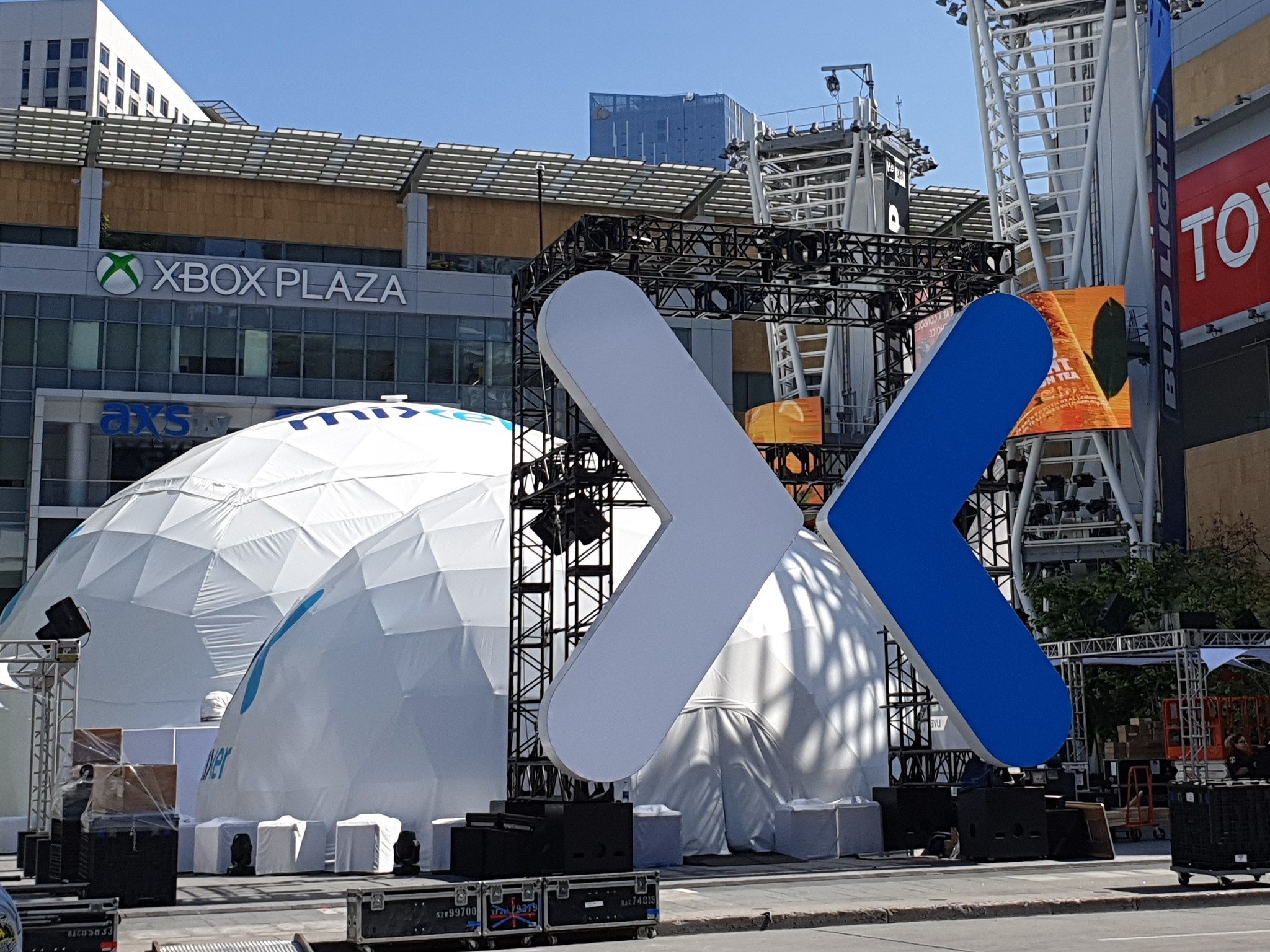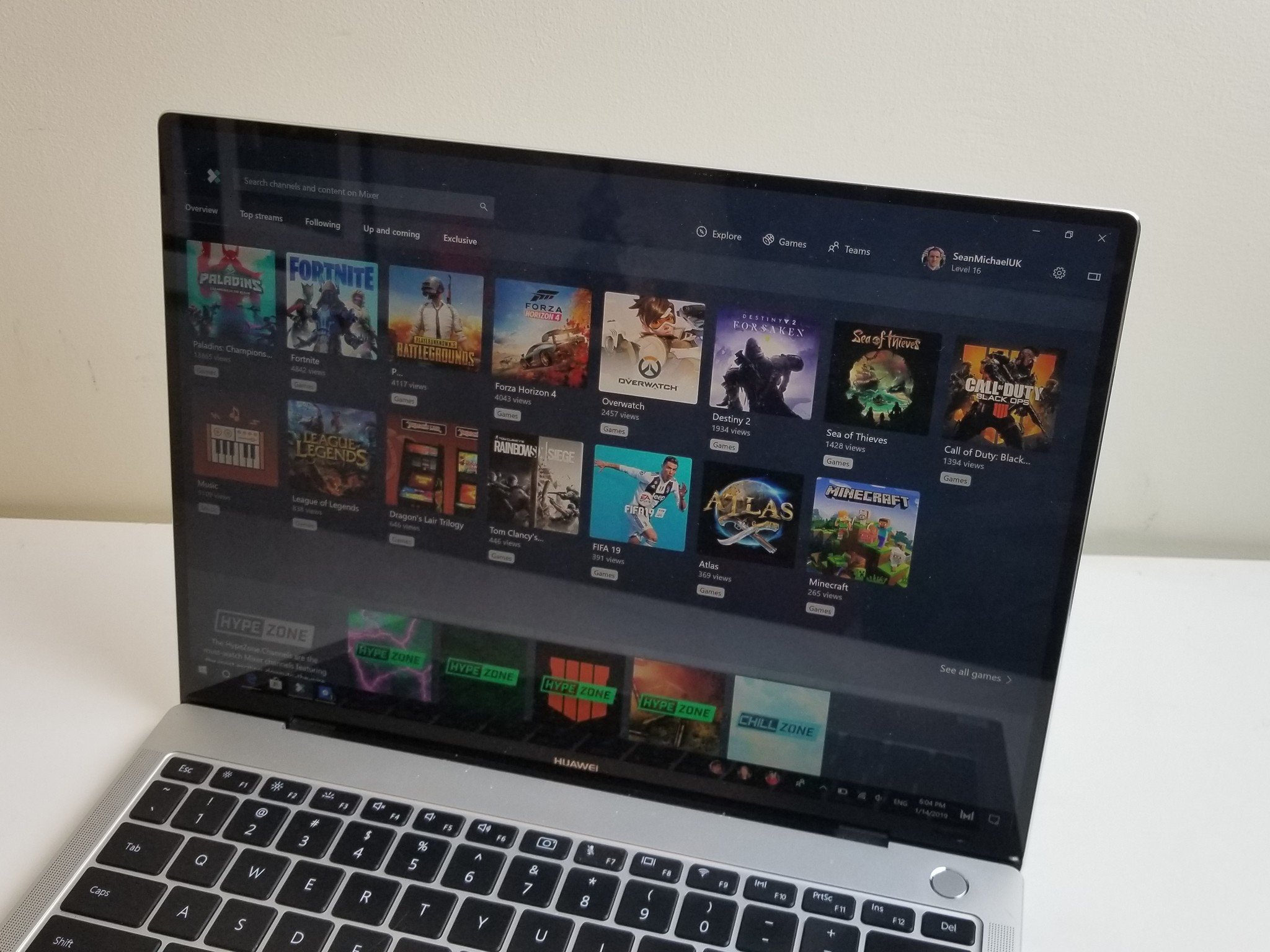Microsoft's Mixer streaming platform has a tough hill to climb, but it's not insurmountable
Microsoft has the unenviable "underdog" position in various departments right now. But few have a bigger hill to climb right now than Mixer, who is going up against streaming behemoths like YouTube and Twitch. Can Mixer realistically compete?
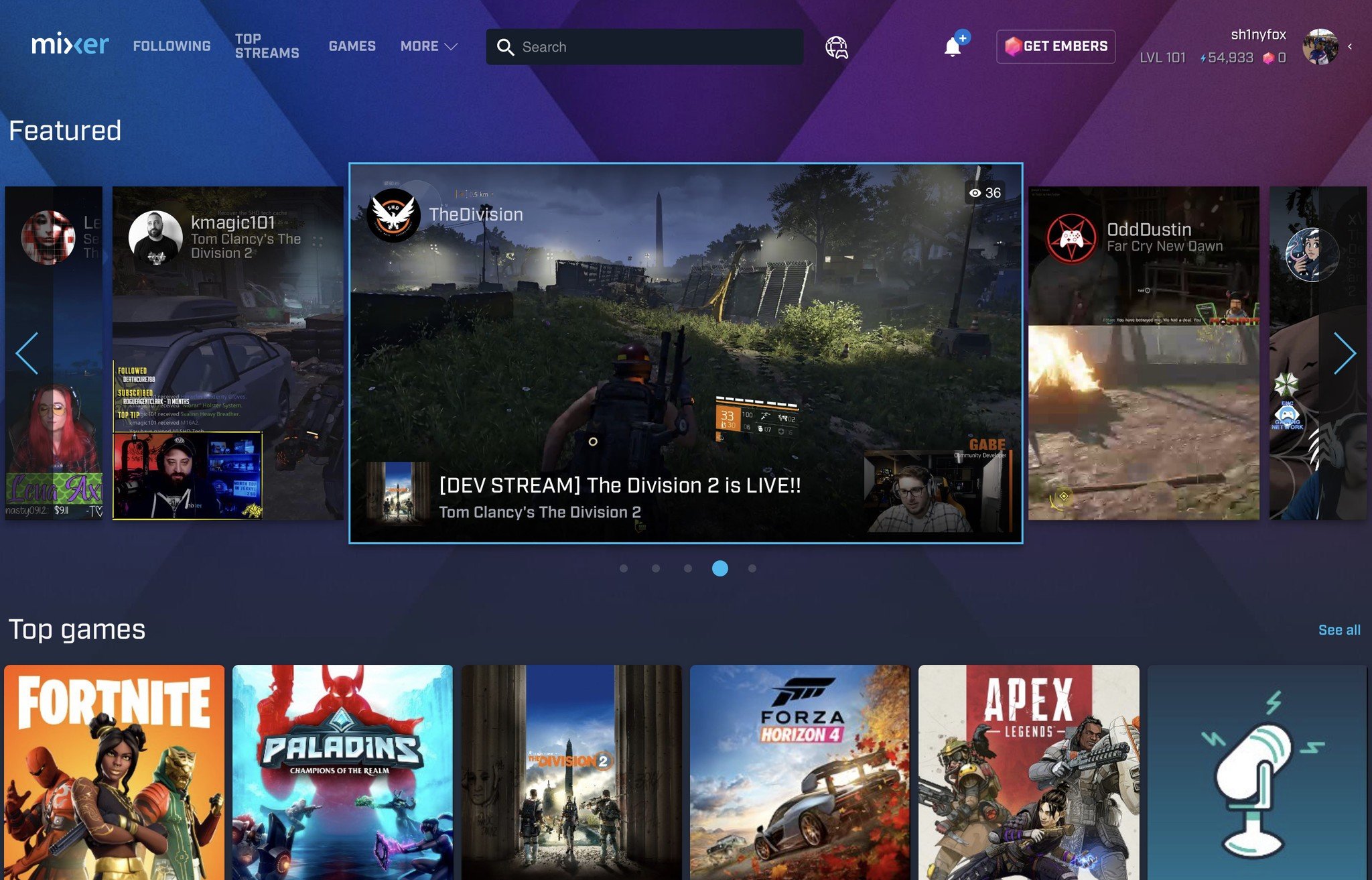
All the latest news, reviews, and guides for Windows and Xbox diehards.
You are now subscribed
Your newsletter sign-up was successful
Microsoft's Mixer streaming platform has a huge hill to climb, and lately, it's arguably gotten even bigger. Microsoft shook up the streaming industry last year when it began buying up major streaming talent, including the likes of Ninja and Shroud, and bringing their sizeable audiences to the platform. While it hasn't proven to be the silver bullet Mixer may have hoped for, it certainly was disruptive. Amazon's Twitch began dropping piles of cash on its stars to keep them from jumping ship, and just last week, Google announced a major deal with Activision-Blizzard for exclusive rights to stream its esports and events on YouTube.
Begun, the streaming wars have. And Mixer is by far the underdog in this space.
Microsoft has incredibly deep pockets, but cash only goes so far. Mixer has a range of problems, both in terms of its culture and its platform, creating a headache for streamers and users. With both of Mixer's founders departing Microsoft last year, Mixer can no longer hide behind its "indie" status — it's part of a massive corporation, and in some ways, it has to meet those expectations.
The past couple of weeks I've spoken to dozens of Mixer partners, both former and current, and Microsoft itself, to learn more about what issues the platform has to overcome, and what the future holds for Mixer.
Mixer's problems
By far, the number one complaint I heard from both users and streamers was one of platform stability and consistency. Mixer uses proprietary video streaming tech, which allows for incredibly low latency between the video stream and the user. In the early days, this was Mixer's unique selling point, affording greater interactivity between the viewer and streamer. But it wasn't long before Twitch and YouTube were able to largely replicate this, shining a spotlight on Mixer's shortcomings in the process.
Mixer streams tend to be less reliable than Twitch and YouTube, requiring users to frequently refresh to get video or audio working correctly. I found this to be the case most often while using Microsoft's old legacy Edge browser, although I haven't had any problems with Chrome, Firefox, or the new Chromium Edge. Either way, it remains the top complaint that I've been hearing, and it has also become a bit of a harmful meme regarding Mixer in general.
Another complaint pertains to platform consistency across devices and apps. The ability to subscribe to a streamer — a primary source of income for content creators — remains inaccessible on some apps, naturally hurting the streamer's bottom line. Money was another source of frustration for partners, with Microsoft's experiments on allowing partners to earn cash via Sparks or Embers creating a perception of inconsistent income. For clarity, Microsoft has always labeled such things as "events" or "experiments," but I'd argue that you can't play with people's cash flow and expect to not suffer backlash when you take it away. The fact that this was brought up repeatedly during my conversations shows that there's still some lingering resentment about the way Microsoft handled these events.
All the latest news, reviews, and guides for Windows and Xbox diehards.
Another big concern pertains to localization (shocker), with streamers outside of the US, often mentioning that they feel second class when compared to American counterparts. Microsoft's presence for Mixer at various major industry events outside of the US has been minimal too, some say, which hurts the ability for creators to work with local brands. We've written extensively about Microsoft's US-centric attitude, and I agree this remains a huge issue for the entire company. Almost everyone I speak to at Xbox in formal interviews mentions "two billion gamers," while simultaneously thinking they can somehow reach those "two billion gamers" while being so US-centric. It's maddening.
These are just a few of the concerns that were sent over to me in the past few weeks, which also include frustrations over its clothing policies which some streamers feel disproportionately target female creators, lack of focus on variety streaming versus battle royale and Fortnite, in addition to soft marketing and user acquisition.
Mixer's potential

Some might wonder why Microsoft is even bothering with Mixer in the first place. Rumors suggest Ninja landed around $25 million dollars for his exclusivity deal with Mixer, which could have funded games or studios instead. If true, that paints a picture of a Microsoft that's all-in on Mixer, but it wouldn't be the first time Microsoft splashed millions of dollars only to cancel it soon after. Redmond simply has that kind of money to experiment.
Truth be told, Microsoft is increasingly in direct competition with Google and Amazon on the gaming front. Leaving Microsoft games and services discovery to the mercy of Google and Amazon might not be the smartest business decision, especially in a world where cloud gaming is poised to expand. The reality of viewing a game stream, to moving directly into playing it is fast approaching, and it's only Microsoft and Google that have the infrastructure in place to create this reality today.
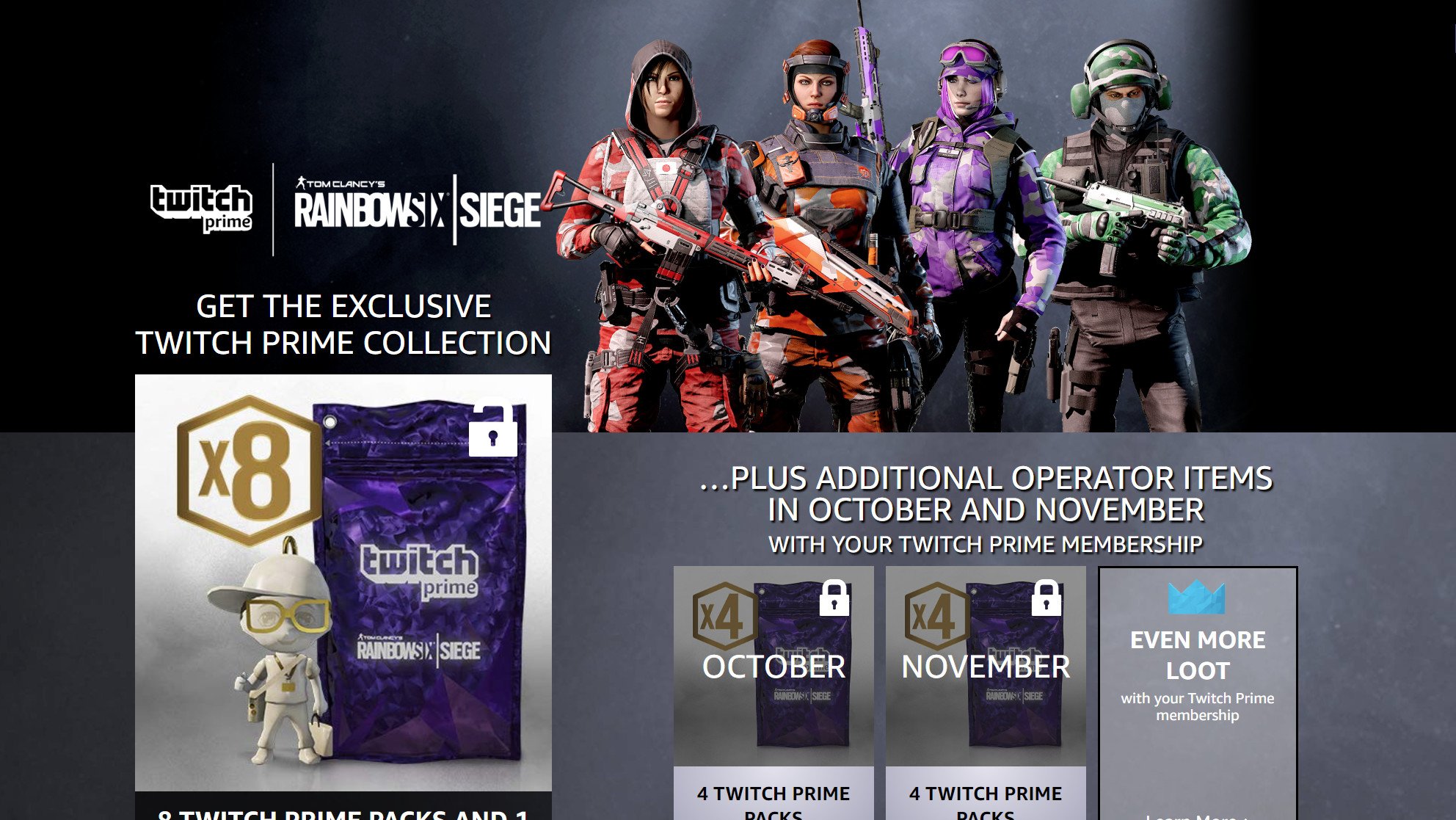
In the future, when you search for a game in Google, you'll be instantly onboarded to a YouTube stream of the game, and then offered direct access to the game via Google Stadia. Amazon is undoubtedly working on something similar for Twitch, and Microsoft is undoubtedly working on similar features for Mixer and Project XCloud. Stepping aside and allowing Google and Amazon to have that entire consumer flow to themselves is not an option.
That said, Microsoft has a long way to go before offering a compelling competing product. As noted, Google just bought up exclusive rights to stream Activision-Blizzard game's esports and events, which is a huge blow to Twitch. Microsoft may have bought up Ninja, Shroud, and a few others, but they're a drop in the ocean compared to landing exclusive streaming deals with entire games. Microsoft already has a deal in place with HiRez for games like Smite and Paladins, but I'd argue that expanding this to other major industry heavyweights is smarter than buying up any individual streamers alone. Microsoft needs to shift a game's entire community if it wants to compete with the likes of Twitch and YouTube long-term.
Mixer's future
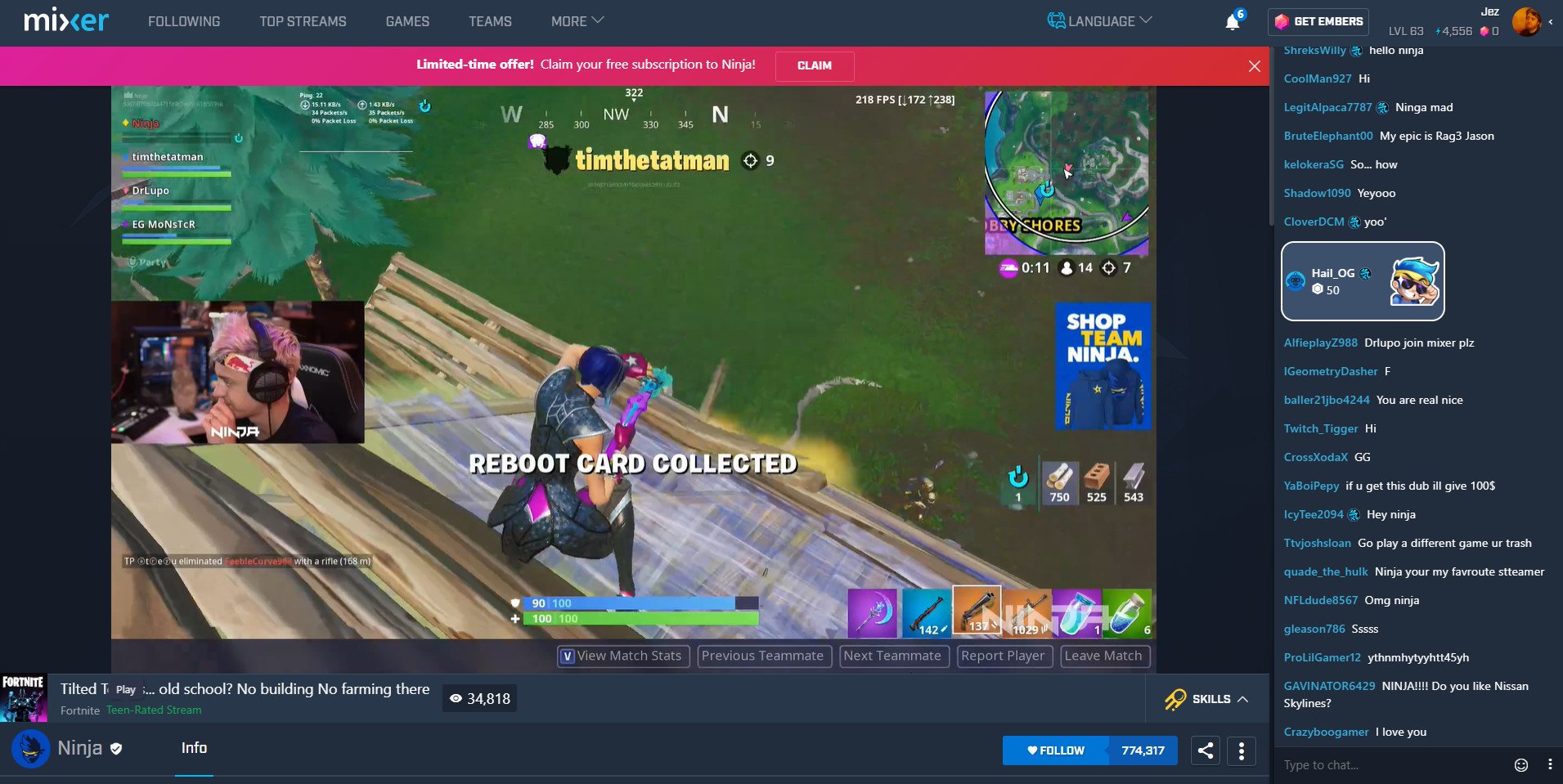
There are obvious ways Microsoft can rise up to the occasion and give Twitch and YouTube a real run for their money. Tie Xbox Game Pass or Xbox Live Gold to Mixer somehow, with free subscriptions, or free games a la Twitch Prime. Embed Mixer more deeply into Windows or Bing, spending more on marketing, events, and acquisitions. It's fair to say that with Mixer's founders departing last year, the platform needs to find new heading. To that end, Microsoft has enlisted Shilpa Yadla to lead the broader Mixer strategy. Yadla led Xbox Live's monetization efforts for a while, and has tenure at Amazon. Microsoft offered us this statement on Mixer's future.
"We have heard the feedback from Mixer's community and our Partners regarding areas where we must improve the service. We recognize that increasing video stability, better discovery capabilities, additional monetization opportunities, and broadening our marketing programs are critically important to our streamers, and we are focused on supporting their success. Our new Head of Mixer, Shilpa Yadla, is committed to addressing these critical needs and in delivering an incredible experience for Mixer's streamers and viewers. The entire Mixer team is working tirelessly behind the scenes on these and other new initiatives to help maintain our positive, welcoming culture as we continue to grow. We expect 2020 will be an exciting year for Mixer and our community."
Microsoft is working on a lot of these aspects already as noted, but one thing that often typifies Microsoft, in general, is its slow, slow speed of doing basically anything. Unlike a smaller independent company that can move way faster, Microsoft is a lumbering giant that has too many working cogs for its own good. Doing something as basic as changing the terms of service can take literal months, as it passes through various legal teams and institutions. Twitch and YouTube have similar problems, but they're already established — Mixer isn't, and catching up is going to take rapidity and urgency more so than anything else.
I don't believe for a second that Mixer is doomed to follow Microsoft's various other failed pet projects. The hill it has to climb is steep, but not impossible, as long as Microsoft can find the will to do so.
Xbox
Main

Jez Corden is the Executive Editor at Windows Central, focusing primarily on all things Xbox and gaming. Jez is known for breaking exclusive news and analysis as relates to the Microsoft ecosystem — while being powered by tea. Follow on X.com/JezCorden and tune in to the XB2 Podcast, all about, you guessed it, Xbox!
